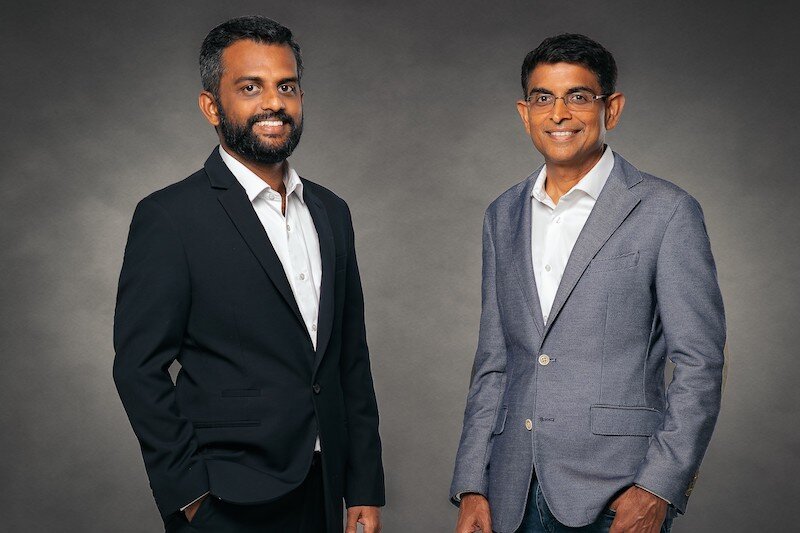The retail technology week in numbers
Do you like numbers? Do you like retail technology? Then this is the article for you.
$155 million…Wine recommendation venture Vivino has raised $155 million in Series D funding to develop its artificial intelligence platform.
2,200…Computop is providing a contactless payment function for CEWE photo stations situated in many Boots’ stores around the UK and Ireland.
These devices enable customers to transfer photos from smartphones so they can be printed out. 2,200 photo stations will feature the Computop solution.
16…Amazon’s electric Rivian vans will start making deliveries in 16 US cities this year.
28%…Only 28% of Brits believe companies now deliver an improved digital experience compared to before the coronavirus pandemic, according to research by VMware.
500…Carrefour has chosen Pricer as its preferred electronic shelf labels supplier.
Pricer will equip and upgrade in-store communication and management systems in all store formats across France, Spain, Italy, Belgium, Romania, Poland, Brazil, Argentina and Taiwan.
Carrefour intends to deploy the tech in approximately 500 stores by the end of 2022.
78% of UK consumers are concerned about visiting attractions in 2021 due to Covid-19, according to research by Omnico Group.
40%…UK shoppers are missing in-store experiences during the coronavirus pandemic. They are also want more convenience from online retailers, according to research from Fresh Relevance.
The company surveyed 2,000 people and found that 40% miss not being able to touch and try products before making a purchase.
$4.9 million…E-commerce delivery startup Pandion has emerged from stealth mode and raised $4.9 million in seed funding.
$100 billion…Amazon Founder and CEO, Jeff Bezos, will transition to the role of Executive Chair in the e-commerce giant’s Q3 this year.
Amazon Web Services Chief Andy Jassy will become CEO at that time.
Bezos goes out on a high note, with Amazon reporting record revenues for its core Christmas quarter, topping $100 billion for the first time as the coronavirus pandemic powered a surge in online shopping.
£1 million…Dixons Carphone is stumping up £1 million for disadvantaged pupils, parents and teachers as part of the retailer’s efforts to tackle digital poverty in the UK.
The business behind Currys PC World and Carphone Warehouse has teamed with The Learning Foundation, and the cash will go to the charity’s Digital Access For All (DAFA) programme to support digital learning.
$3 trillion…Biometrics will authenticate over $3 trillion of payment transactions in 2025, up from $404 billion in 2020, according to Juniper Research.
This will be fuelled by increased use of OEM Pays (such as Apple Pay and Samsung Pay), for both remote and in-store payments.
Two-thirds of European retailers believe self-scanning solutions will give consumers confidence to return to physical stores after coronavirus lockdowns, according to research by Scandit.
3…Amazon is expanding its Amazon One palm reading biometric identification system to three more Amazon Go stores in Seattle.
2.5…Dominic Rose has left social shopping app Depop, where he served as Chief Operating Officer, “after an epic 2.5 years that has seen explosive growth, expansion of the team from 85 to over 400 and a global pandemic”.
$10 million…SamCart, a US-based e-commerce platform pitched at direct to consumer brands, has announced a $10 million Series A funding round led by TTV Capital.
£48.1 million…Asos and boohoo paid just £48.1 million tax on £4.5 billion sales last year, according to a report by The Sunday Times.
That compares with the £160 million in business rates paid by Sir Philip Green’s Arcadia Group and Debenhams, whose brands the aforementioned online fast fashion giants are set to snap up.
$48 million…Italy headquartered buy now and pay later venture, Scalapay, has raised a $48 million seed round led by Fasanara Capital.
13.7%…The overall GB shop vacancy rate increased to 13.7%, from 13.2% in Q3, according to research by the British Retail Consortium and Local Data Company.
It was 1.6 percentage points higher than the same point in 2019. This was the tenth consecutive quarter of increasing vacancy rates.










